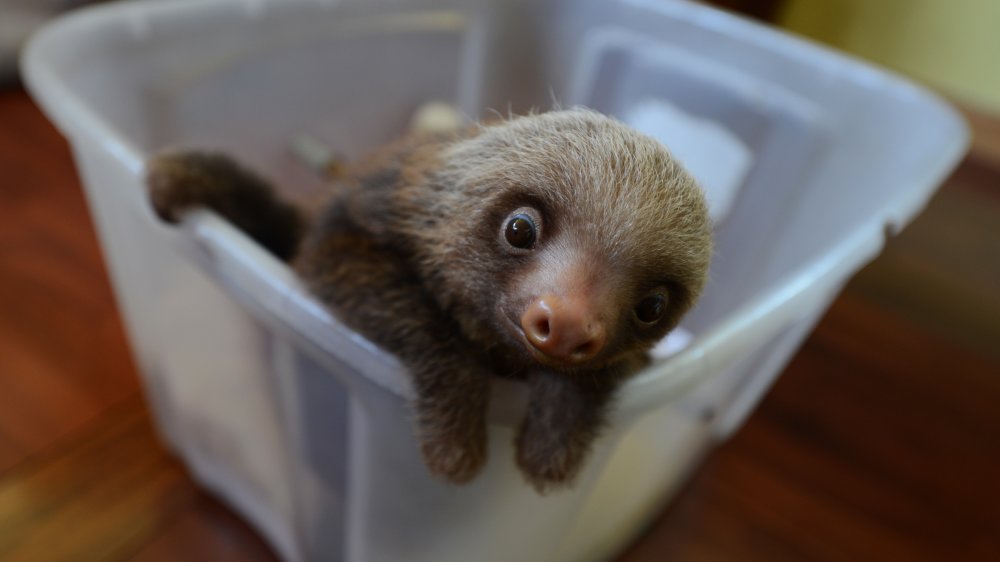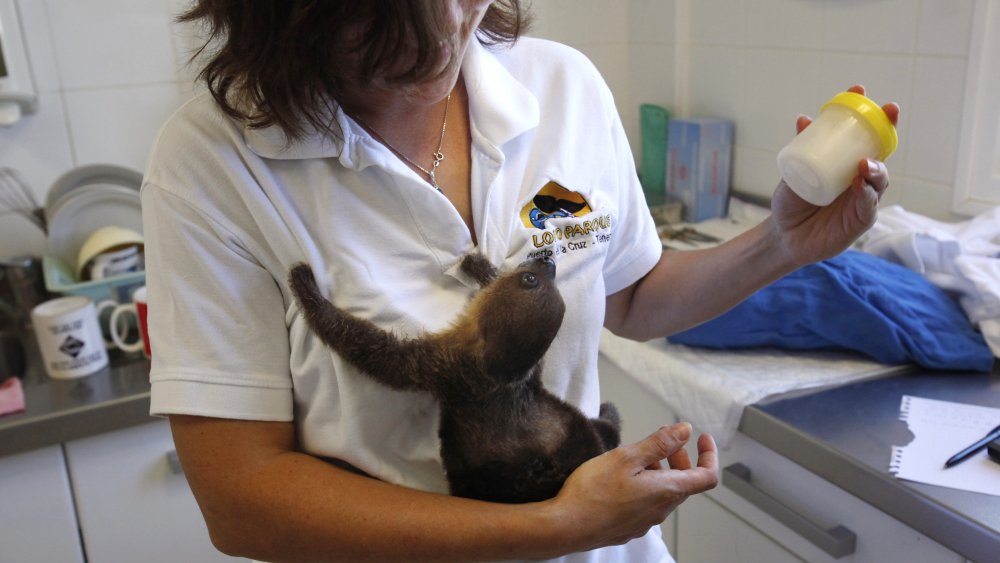Are Sloths Dangerous To Own As Pets?
As human beings, it is in the very fabric of our nature to look out upon the animal kingdom with a loving sense of emotional imperialism and ask "how many of those things can I take home with me without getting mauled?" Some creatures, like kodiak bears and any variety of cat that you couldn't fit into a shoebox, seem like obvious no-thank-yous. But what about the more sanguine beasties? A sloth seems like a natural choice for domesticity. They're nature's sleepy-eyed hippies. They're a bag of Doritos and a stalwart refusal to do their own dishes away from being your first roommate after college. It seems like a ridiculous question to ask, but is it dangerous to own your own sloth?
Owning a sloth: an unexpected bloodsport
The simple answer is, "yes, both to you and to the sloth." Sloths, despite their remarkably chill attitude, are surprisingly high maintenance, requiring a high-temperature, high-humidity environment to thrive. They also suffer from the same disadvantage as most animals that aren't cats or dogs: they don't have thousands of generations of domestication backing them up. That means that interaction with human beings doesn't come naturally to them.
This is where sloths deviate from so many of the other exotic critters that folks keep in their apartments in lieu of developing a personality. As has been pointed out by the Sloth Conservation Foundation, these are natural prey animals whose natural response to stress is to freeze, meaning that every time you reach out to give your emotional support sloth little scratchums, it'll likely be freaking the fudge out without you knowing it. This sort of constant terror isn't great for living creatures, and it's a double bummer when applied to an animal you purportedly care about.
There's also the moral argument. With the niche market for pet sloths on the rise, more and more of the things are being pulled from the wild and imported into the United States. Since they take nearly a year to gestate and need another year with their moms before becoming independent, the turnaround time on a new sloth isn't conducive to responsible breeding. Chances are, if you're picking one up as a pet, it was yanked out of a tree and shoved in a burlap sack before being crated to the U.S. under less than ideal conditions.
Which brings us to our final point: even being slow and generally inclined to freeze under pressure, sloths are wild animals with, and this might be a surprise, gigantic abomination teeth. We'll let those folks from the Sloth Conservatory explain for themselves:
"We have worked with hundreds of sloths over the years, (both wild and human-reared) and they can all inflict serious injuries if scared or irritated. We have seen a sloth bite through a human hand leaving a hole big enough that you could look through."
In short, if you feel a severe need for a particularly docile animal, maybe just go adopt a really fat dog.

